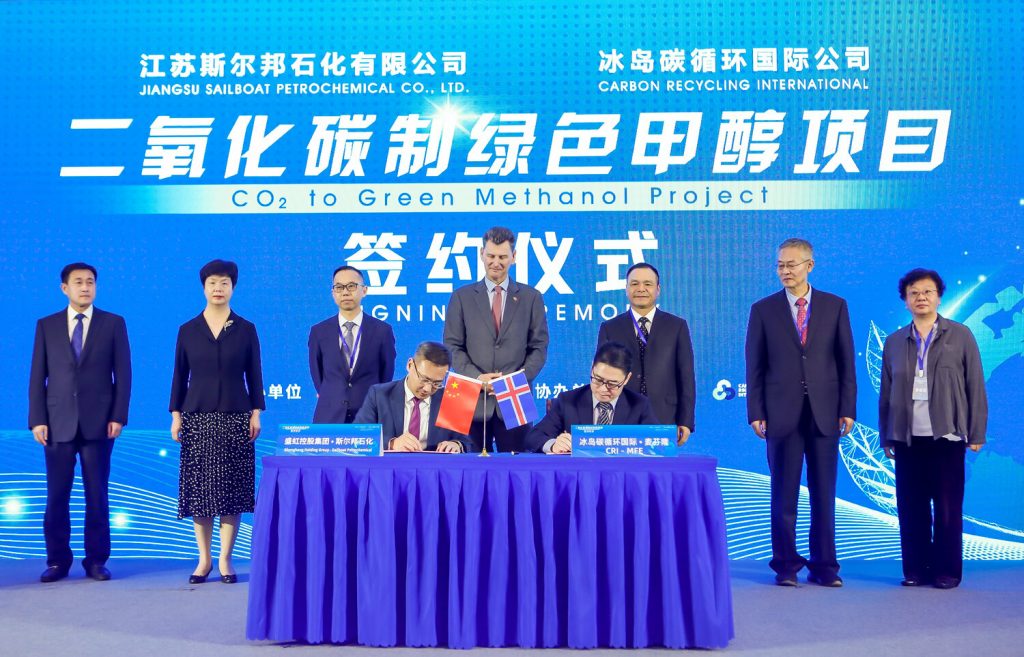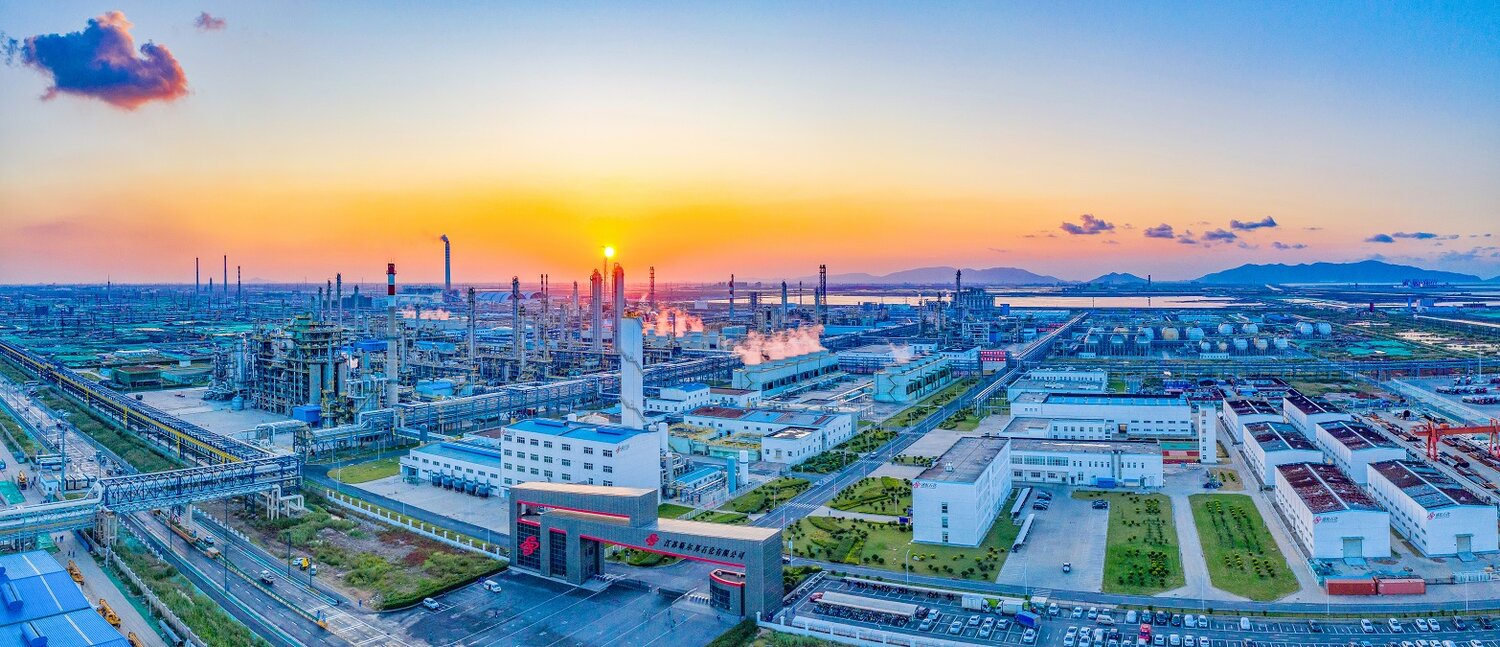CRI chemical plant project in China will recycle 150.000 tons of CO2 per year to make materials for solar panels
Both companies plan to produce 100,000 tons of methanol annually and is expected to begin its operation in 2023

Chinese petrochemicals corporation Jiangsu Sailboat Petrochemicals Co. ltd has signed an agreement with Icelandic technology company Carbon Recycling International – CRI hf., to design a chemical plant based on CRI’s Emissions to Liquids (ETL) technology.
The plant will recycle approximately 150,000 metric tons of CO2 and 20,000 metric tons of H2 per year from other onsite processes to produce 100,000 tons of methanol annually. The Jiangsu Sailboat Green Methanol plant will be built in Lianyungang, Jiangsu province on the east coast of China, integrated into their 15 km2 Shenghong petrochemical industrial park.
Methanol is the main raw material used in Jiangsu Sailboat’s existing 2.4 million metric tons per year production of a wide product range of polymers and plastics. These include products used for making solar panels and plexiglass.
The CRI ETL plant’s direct use of 150,000 metric tons of CO2 annually, will equal the effect of taking 53,000 fossil fueled cars off the roads. Indirect emission savings from avoiding the use of fossil raw materials is even larger, estimated to be as high as 550,000 tons per year. This is equivalent to 37,000 hectares of forest planting area, or 370 square kilometers of land.
The plant will be owned and operated by Jiangsu Sailboat and is expected to begin its operation in 2023. The cost of the project is estimated around USD 35 million (RMB 225 million).
This project will be the second in China based on CRI’s ETL technology. The first CRI project, the Shunli plant in Anyang, Henan province, is currently in the final stages of construction and expected to be in operation early next year.
CRI, with its local JV partner MFE, will facilitate the project execution, providing design, engineering and technology license for the CO2-to-methanol process along with key proprietary equipment and related services.
“This agreement is exemplary of what the chemical industry can do to contribute to the fight against climate change. By utilizing waste and by-product resources in an innovative way we can take the necessary steps to reduce emissions and replace traditional fossil fuels in the production of most of our consumer products.” said Ingolfur Gudmundsson, CEO of CRI.
“This project is perfectly aligned with Shenghong Petrochemical strategy to vigorously develop the circular economy. We strive to achieve safe development, low emissions and efficient resource use through cyclic utilization. This is a major step in our efforts to build a green industrial value chain to make the best use of everything, achieve clean production and become the world’s first-rate ecological, intelligent and safe petrochemical enterprise.” said Wei BAI, CEO of Jiangsu Sailboat.
The agreement was signed at parallel signing ceremonies held in Iceland and China and attended by both Chinese and Icelandic officials.
About Jiangsu Sailboat Petrochemical
Jiangsu Sailboat Petrochemical is a privately held company, subsidiary of Shenghong Petrochemicals, one of the largest corporations in Jiangsu province. The company is Headquartered at the Shenghong petrochemical industrial park, one of Chinas largest petrochemical sites. The company produces ethylene and propylene in the world’s largest methanol to olefins (MTO) process plant. It then achieves the production of downstream derivatives, including ethylene vinyl acetate copolymer (EVA), ethylene oxide (EO) and its derivatives, acrylonitrile (AN), methyl methacrylate (MMA), superabsorbent polymer (SAP) etc. The company sells about 2.4 million tons per year of chemical products and Group revenue last year was over USD 45 billion.

About Carbon Recycling International – CRI hf.
Carbon Recycling International (CRI)’s mission is to help industries achieve their decarbonization and sustainability objectives. CRI has developed the Emissions-to-Liquids (ETL) technology to provide a pathway for renewable chemicals and fuels by converting CO2 and H2 into methanol. The ETL process has already been deployed to the power generation and steel sectors, and more are being added. CRI has 30 employees and operates in Europe and China.
Source:
Carbon Recycling International, press release, 2021-10-20.
